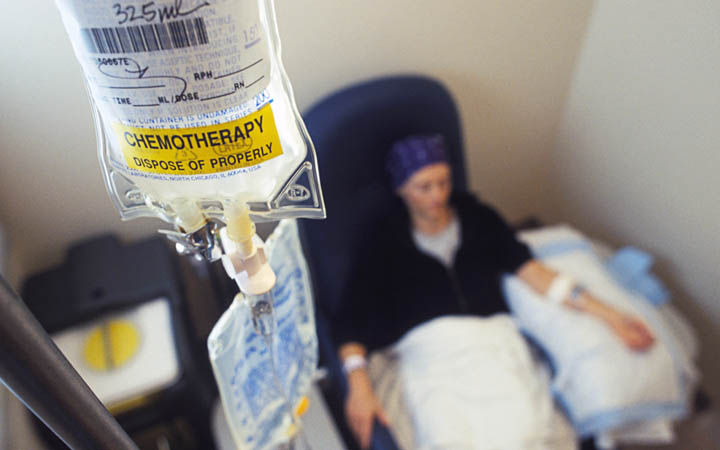Last Updated on January 7, 2021
#1 – Cancer Chemotherapy: Treating
Disease with Chemicals
 © wiseGEEK
© wiseGEEKUnderstanding the effects of chemotherapy on the body will help you understand why detox is essential. Chemotherapy restricts all cells, both normal and malignant, from further multiplication.
This means that the body’s healthy cells are also destroyed, resulting in adverse chemotherapy side effects such as mouth sores, female and male sterility, decreased immunity, nausea, and loss of hair.
More severe and life-threatening effects may include blood clots, heart disease, and liver and renal failure. As stated by the American Cancer Society, it is a combination of these body-damaging consequences which often leads to the development of another cancer.
Any dose of chemotherapy drugs is too high, whatever the dose may be. Chemo drugs create a wide range of health problems. Sadly, the modern treatment for every symptom is just another dose of drugs, each delivering more side effects to be treated.
#2 – Common Drugs: Side Effects and
Prescribed Treatments
 © Odyssey
© OdysseyNabilone: This drug is prescribed for GI complications. It leads to drowsiness, low blood pressure, and disorientation. These symptoms are in turn treated with continual rounds of several drugs causing easy bruising, muscle weakness, mood swings, and more.
Corticosteroids: These are synthetic steroids which cause hormones imbalance and leads to drowsiness. It’s usually taken before the beginning of chemotherapy.
Metoclopramide: This drug is used to treat nausea by blocking the centers of the brain ‘the medulla oblongata’. It is prescribed to help enhance blockage of chemicals from intestines and alleviate GI contracts. It can lead to irreversible movement disorders.
Phenothiazines: Prescribed to relieve symptoms of vomiting and nausea, but causes involuntary movement, restlessness, and drowsiness. These symptoms are then treated with drugs similar to Benadryl and Cogentin, an anti-tremor used to treat Parkinson’s disease.
Bleomycin: Remarkably linked to toxic buildup in the lungs. Pulmonary toxicity may be fatal and develop to lung fibrosis, making it hard for the lungs to function properly.
Vincristine: Common effects are neurotoxicity, gastrointestinal disorder, and bone marrow suppression, leading to renal failure. Infections related to loss of white blood cells are treated with antibiotics.
Acyclovir: This drug is prescribed to treat herpes, which is common in those getting cytotoxic therapies for cancer. It can stimulate diarrhea, nausea, vomiting, and decreased urination, which may mess with effective toxins removal. In rare cases, acyclovir can cause terrible damage to the kidneys, leading to renal failure.
Methotrexate: Known to cause serious, life-threatening side effects such as damage to the kidneys, liver, and lungs. This drug can reduce blood cell counts, decreasing the ability to combat infections and messing with regular blood clotting.
Doxorubicin: This is a chemo agent which causes heart damage including cardiomyopathy and is a major trigger for hair loss.
Cis-platinum: This drug commonly causes nausea and vomiting after a couple of hours following treatment. It hinders urination, confusing the removal of toxins. And it also leads to renal toxicity.
Nitrogen Mustard: The injection spot is most prone to pain and blood clotting because of this metal-binding chemo compound.